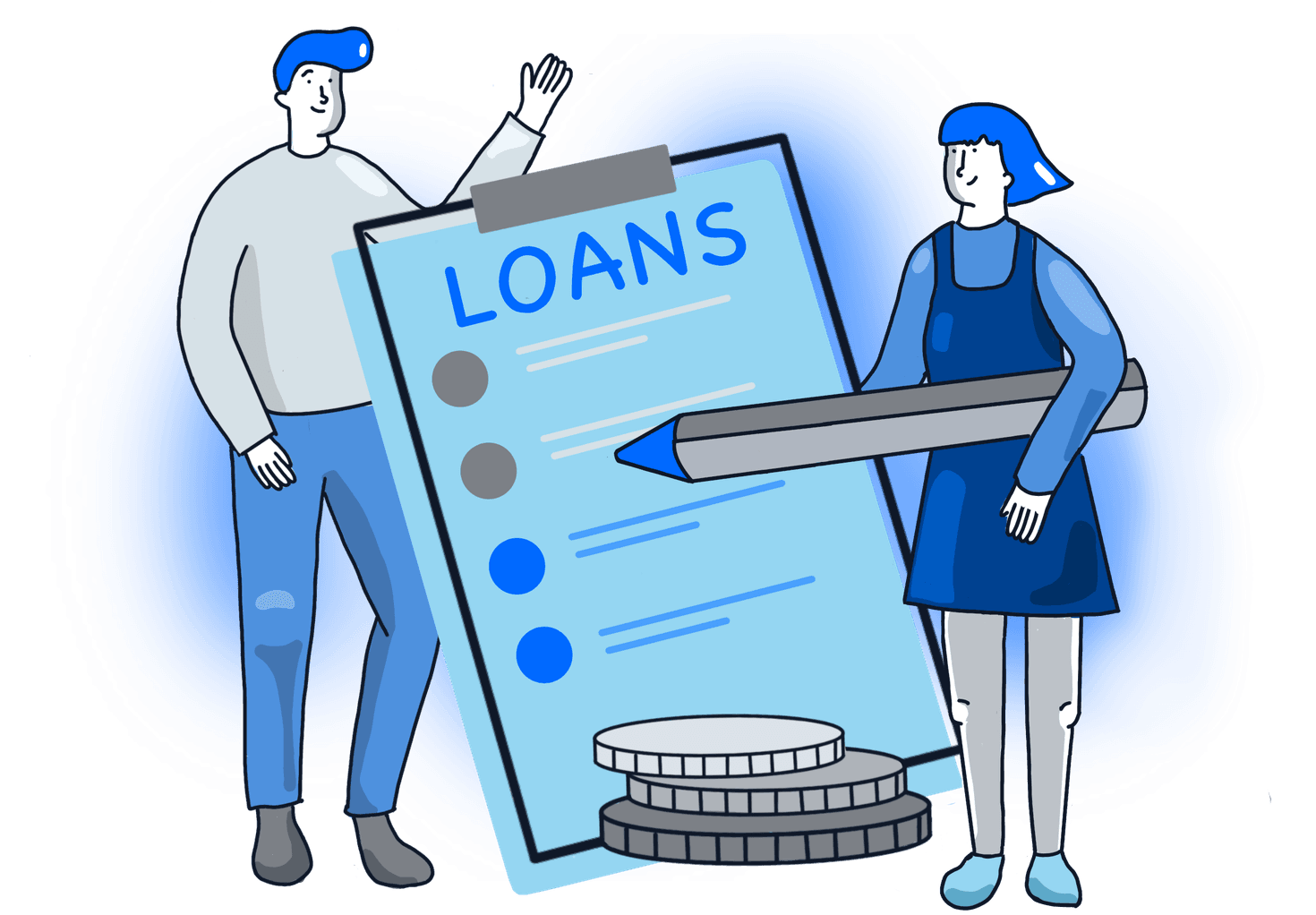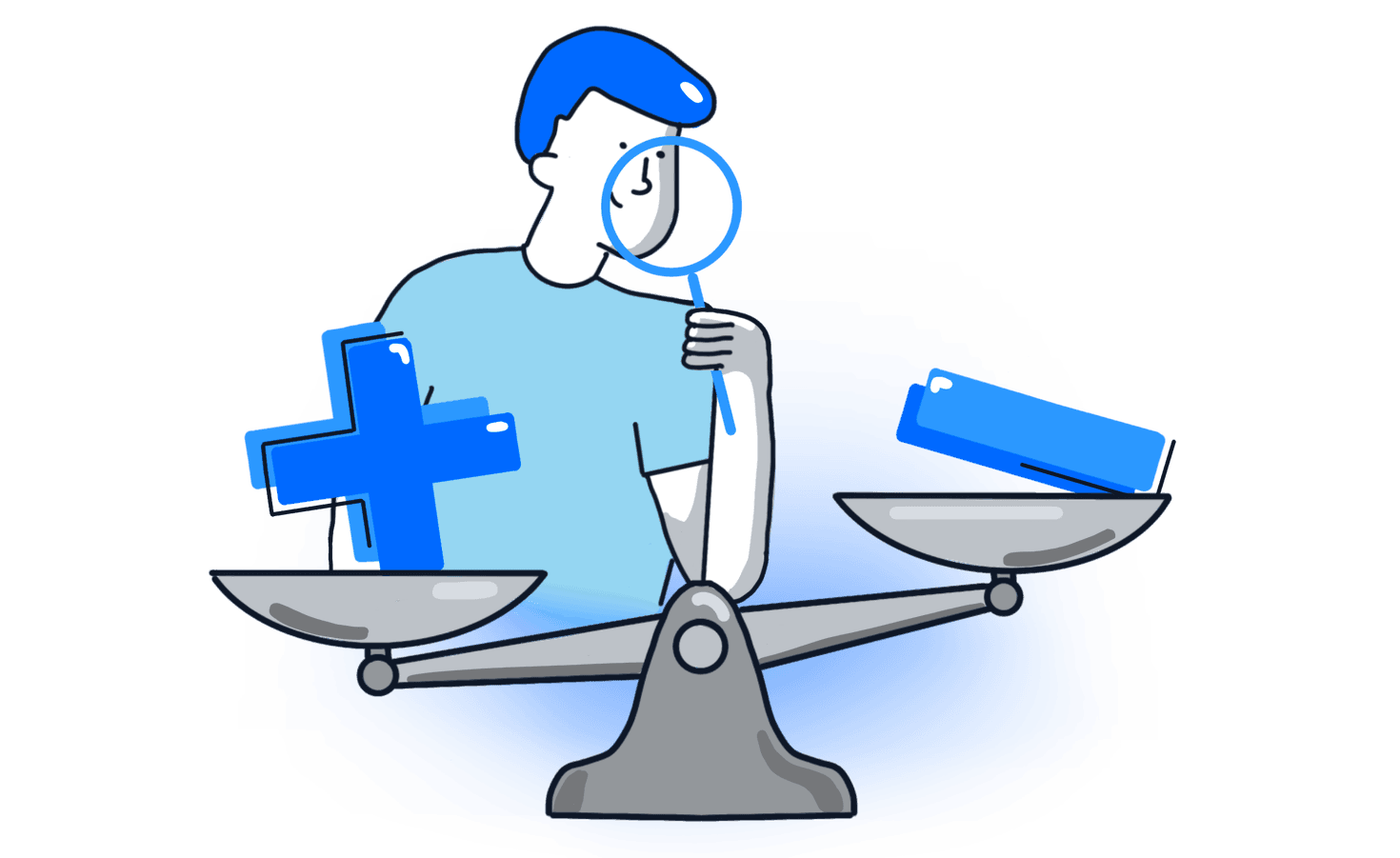Turinys
Loans in Lithuania - everything you need to know
Loans are in their simplest form an agreement between a lender and a borrower about the loan terms. The lender has the funds available and borrows them under specific criteria, often through an interest rate of some sort and some additional fees. This is considered the payment for borrowing the money and is paid back monthly, quarterly, biannually, or annually by the one who borrowed the money. As the agreement is made, certain aspects like amount, runtime (how long the period for returning the money is), and interest rate must be set. This is often done by banks to consumers, where banks have the funds available to them and lend them to their customers under a specific contract.
For an amount of 2500 €, over a runtime of 1 year (12 months), with an interest rate of 38.40% and the total cost of borrowing at 45.93%, with fees included, the final repayment for this loan is around 3049.92 €. However, this amount is split over 12 terms (months), with a monthly payment of 254.16 € (fees included).
Usually, you would need to consult a local bank to sign up for a loan, but as online banking has become more and more popular, there are several lenders offering convenient online loans.
While most traditional banks require a thorough investigation of your financial standpoint regarding monthly income, budgets, last year’s spending, and much more, some lenders only require minimum information, which makes them more accessible. Some online lenders might also offer lower interest rates since they are not burdened by paying rent for a physical subsidiary in the area. However, usually, the interest rates for online loans tend to be higher than for conventional bank loans.

How to apply for a loan in Lithuania
To apply for a loan in Lithuania, you must fulfil the following requirements:
Be over 18 years old. Some lenders might have a minimum age requirement of 21 or even 25 years of age. This requirement often comes with bigger loans, so there are still plenty of loans available to you even if you are only 18 years old.
Have your permanent place of residence in Lithuania.
Have a stable income source. Banks offer loans on the basis of getting back the money after the runtime has passed. If you have no income source, you cannot pay back your loan with the added interest, which in turn means you will not be able to take a loan in the first place.
Have the option to identify yourself with Smart-ID or with an Lithuanian ID-card.
Have a bank account in Lithuania.
Have a good credit history or no current payment remarks.
Some lenders also check that you are not registered as a person with gambling restrictions.
Types of loans
Here is an overview of the loans offered by online lenders in Lithuania, which you can also find right here on Moneezy.
Classic loans
Consumer Loans (Vartojimo paskolos) and Quick Loans (Greitos paskolos) are two common loans that follow the classic loan structure in Lithuania. You apply for a loan of a certain amount, as well as decide on a runtime for paying it back with the added interest and fees. The different terms are mainly used to distinguish between small and big loans. SMS-Loans (SMS paskolos) are mainly focused on smaller loans but are available within a couple of hours and through SMS once you already have an active contract with a lender.
These loans can be used for a lot of different things. The smaller loans can be used for an unexpected expense that has come through, an emergency that must be taken care of, or investing in an item you've wanted for years. The bigger consumer loans are more suited towards initiating start-ups, loans for property or vehicles, as well as energy-related or other renovation expenses in your home. The possibilities are endless, which is why the consumer loan is the most common loan.
Special loans
Consolidation Loans (Paskolų konsolidavimas) is a term for combining several smaller loans into one big loan, to avoid paying huge interest for several loans at a time.
These are especially useful when consumers have taken several payday loans and are now burdened with several payment dates and different interest rates.
Lastly, we have Overdraft (Overdraftas), which allows you to exceed the amount of money on your account by a set amount each month, without paying the normal fees.
This is especially useful when conducting a big project, for example, a house renovation, where unexpected expenses can come out of nowhere. The loan is only active if your account experiences an overdraft, and the loan will cover the rest of your expenses. Once next month’s paycheck comes in, you can pay off the loan with a small interest rate.
Pros and cons of payday loans and similar loan products
Let's look at the positives and negatives of such loans, so you can decide whether borrowing money is right for you in your situation and what kind of loan currently suits your needs.
Wide variation of loans available, so it is easy to find one that suits your situation
You can start projects instantly instead of saving up over time
Transparency throughout the entire process, the application is often carried out online
Many unsecured loans available
Often no need to justify what you use the money for
Lifestyle inflation and risk of reckless spending
Risk of increasing debt, if you are not careful with your budget
Extra fees and mark on your credit history if you do not comply with payment dates
Overall, payday loans, consumer loans, and other similar loan products can be a good option to get extra cash in situations, where it is better to pay for your expense immediately.
However, if you are not realistic and thorough in your planning of budgets in connection with your loans, you can end up having trouble paying them back over time. Furthermore, if you apply for a loan to spend on devaluating assets such as technology, fashion, and trends, you are not looking at investments, but rather at reckless spending, something to avoid using loans for.
Being mindful and intentional about your loans is the most important aspect. But if you keep these risks in mind when applying for a loan, they can be a great source to bring projects to life.

What to do when you cannot pay your loan back
If you are having trouble with paying back your loan, you can look for help by turning to:
Your lender - they might offer a debt counselor's service
If you need advice on paying your loan back, it is best to seek advice as early as possible, so you can start getting back on track early on.
Remember, that Moneezy does not offer financial advice or debt counseling services.
Our experiences related to Lithuanian loans
The Lithuanian loan market has developed a lot in the past years. New lenders are constantly popping up, which might make it confusing to choose one for you.
The Lithuanian loan market offers different loans starting from small payday loans to large consumer loans and mortgages. There are many lenders, which means that they offer sometimes deals for both new and existing customers. Find the right loan for your needs and do not choose the first random lender, but choose one with the most advantageous terms.
When comparing loans, look for the total cost of borrowing (BVKKMN), which will give you a good understanding of how much the loan will cost you in total.
Lithuanians are not into bureaucracy. Loan processes like everything else in Lithuania are usually carried out online, which makes the application process very quick and secure as you can use your ID card to sign the contract. However, many lenders offer the option to apply in their offices as well.
Compare lenders and choose the best one for you, since there are a lot of lenders in the Lithuanian loan market.
And always remember that all loans are financial obligations and must be paid back.

Emil naudojasi savo patirtimi, kad pakeistų finansų sektorių. Jis studijavo University of Southern Denmark (SDU) ir nuo 2013 m. yra „Intelligent Banker“ generalinis direktorius. Emil padėjo daugiau nei 500 000 vartotojų visame pasaulyje rasti geriausius finansinius sprendimus.




